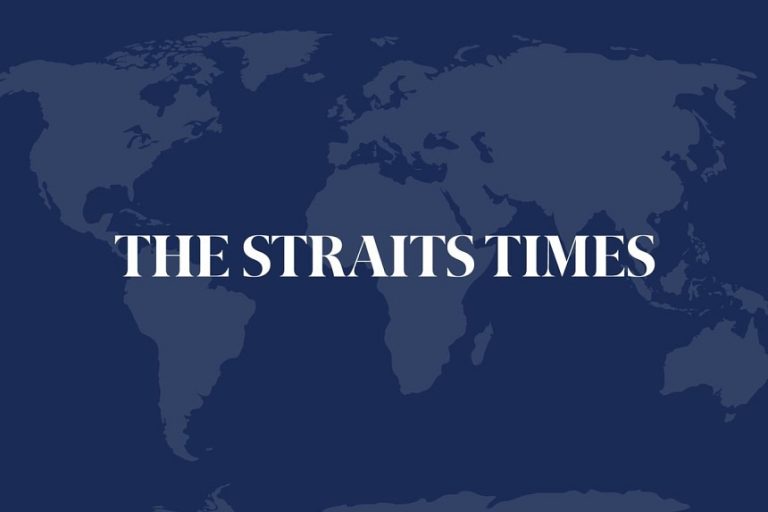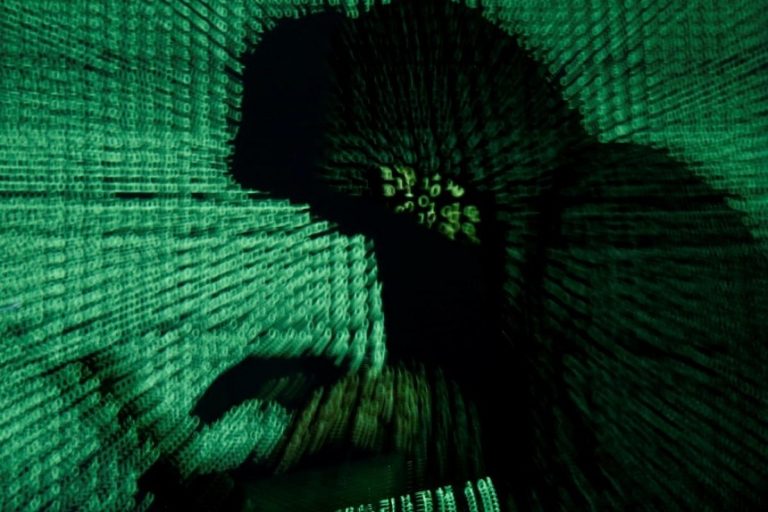
Similar Posts
The World Health Organisation (WHO) and some 50 countries issued a warning on Nov 8 at the United Nations about the rise of ransomware attacks against hospitals, with the United States specifically blaming Russia.
Ransomware is a type of digital blackmail in which hackers encrypt the data of victims – individuals, companies or institutions – and demand money as a “ransom” in order to restore it.
Such attacks on hospitals “can be issues of life and death,” according to WHO head Tedros Adhanom Ghebreyesus, who addressed the UN Security Council during a meeting on Nov 8 called by the United States.
“Surveys have shown that attacks on the healthcare sector have increased in both scale and frequency,” Dr Ghebreyesus said, emphasising the importance of international cooperation to combat them.
“Cybercrime, including ransomware, poses a serious threat to international security,” he added, calling on the Security Council to consider it as such.
A joint statement co-signed by over 50 countries – including South Korea, Ukraine, Japan, Argentina, France, Germany and the United Kingdom – offered a similar warning.
“These attacks pose direct threats to public safety and endanger human lives by delaying critical healthcare services, cause significant economic harm, and can pose a threat to international peace and security,” read the statement, shared by US Deputy National Security Advisor Anne Neuberger.
The statement also condemned nations which “knowingly” allow those responsible for ransomware attacks to operate from.
At the meeting, Ms Neuberger directly called out Moscow, saying: “Some states – most notably Russia – continue to allow ransomware actors to operate from their territory with impunity.”
France and South Korea also pointed the finger at North Korea.
Russia defended itself by claiming the Security Council was not the appropriate forum to address cybercrime.
“We believe that today’s meeting can hardly be deemed a reasonable use of the Council’s time and resources,” said Russian ambassador Vassili Nebenzia.
“If our Western colleagues wish to discuss the security of healthcare facilities,” he continued, “they should agree in the Security Council upon specific steps to stop the horrific… attacks by Israel on hospitals in the Gaza Strip.” AFP

WASHINGTON – A previously confidential directive by Biden administration lawyers lays out how military and spy agencies must handle personal information about Americans when using artificial intelligence, showing how the officials grappled with trade-offs between civil liberties and national security.
The results of that internal debate also underscore the constraints and challenges the government faces in issuing rules that keep pace with rapid advances in technology, particularly in electronic surveillance and related areas of computer-assisted intelligence gathering and analysis.
The administration had to navigate two competing goals, according to a senior administration official Joshua Geltzer, the top legal adviser to the National Security Council, “harnessing emerging technology to protect Americans, and establishing guardrails for safeguarding Americans’ privacy and other considerations”.
The White House last month held back the four-page, unclassified directive when President Joe Biden signed a major national security memo that pushes military and intelligence agencies to make greater use of AI within certain guardrails.
After inquiries from The New York Times, the White House has made the guidance public. A close read and an interview with Mr Geltzer, who oversaw the deliberations by lawyers from across the executive branch, offers greater clarity on the current rules that national security agencies must follow when experimenting with using AI.
Training AI systems requires feeding them large amounts of data, raising a critical question for intelligence agencies that could influence both Americans’ private interests and the ability of national security agencies to experiment with the technology.
When an agency acquires an AI system trained by a private sector firm using information about Americans, is that considered “collecting” the data of those Americans?
The guidance says that does not generally count as collecting the training data – so those existing privacy-protecting rules, along with a 2021 directive about collecting commercially available databases, are not yet triggered.
Still, the Biden team was not absolute on that question. The guidance leaves open the possibility that acquisition might count as collection if the agency has the ability to access the training data in its original form, “as well as the authorisation and intent to do so.” NYTIMES

NEW YORK – T-Mobile’s network was among the systems hacked in a damaging Chinese cyber-espionage operation that gained entry into multiple US and international telecommunications companies, The Wall Street Journal reported on Nov 15, citing people familiar with the matter.
Hackers linked to a Chinese intelligence agency were able to breach T-Mobile as part of a months-long campaign to spy on the cellphone communications of high-value intelligence targets, the Journal added, without saying when the attack took place.
“T-Mobile is closely monitoring this industry-wide attack,” a company spokesperson told Reuters in an email.
“At this time, T-Mobile systems and data have not been impacted in any significant way, and we have no evidence of impacts to customer information.”
It was unclear what information, if any, was taken about T-Mobile customers’ calls and communications records, according to the WSJ report.
On Nov 13, The Federal Bureau of Investigation (FBI) and the US cyber watchdog agency Cisasaid China-linked hackers have intercepted surveillance data intended for American law enforcement agencies after breaking into an unspecified number of telecom companies.
Earlier in October, the Journal reported that Chinese hackers accessed the networks of US broadband providers, including Verizon Communications, AT&T and Lumen Technologies, and obtained information from systems the federal government uses for court-authorized wiretapping.
Beijing has previously denied claims by the US government and others that it has used hackers to break into foreign computer systems. REUTERS

“Ofcom to Detail Action Required from Social Media Companies Over Illegal Content – December Deadline Looming for Compliance”
LONDON – Britain’s media regulator Ofcom said on Oct 17 that it would detail what action it expected social media companies to take over illegal content on their platforms in December, saying it expected swift action or they would face consequences.
Ofcom, which is responsible for implementing the government’s Online Safety Bill, said the platforms would have three months to complete their own illegal harms risk assessments after the publication of its demands.
“The time for talk is over,” Ofcom’s Chief Executive Melanie Dawes said on Oct 17. “From December, tech firms will be legally required to start taking action, meaning 2025 will be a pivotal year in creating a safer life online.”
She said the regulator had already seen positive changes, but expectations were going to be high.
“We’ll be coming down hard on those who fall short,” she said.
Ofcom said better protections had already been introduced by Meta, the owner of Instagram and Facebook, and Snapchat which have brought in changes to help prevent children being contacted by strangers.
Britain’s new online safety regime, which became law last year, requires social media companies to tackle the causes of harm, particularly for children, by making their services safer.
If companies do not comply with the new law, they could face significant fines and, in the most serious cases, their services could be blocked in Britain. REUTERS

An Iranian hacking group is actively scouting U.S. election-related websites and American media outlets as election day nears, according to a new Microsoft blog published on Wednesday. Researchers say the activity suggests “preparations for more direct influence operations.”
The hackers – dubbed Cotton Sandstorm by Microsoft and linked to Iran’s Islamic Revolutionary Guard Corps – performed reconnaissance and limited probing of multiple “election-related websites” in several unnamed swing states, the report notes. In May, they also scanned an unidentified U.S. news outlet to understand its vulnerabilities.
“Cotton Sandstorm will increase its activity as the election nears given the group’s operational tempo and history of election interference,” researchers wrote. The development is particularly concerning because of the group’s past efforts.
Iran’s mission to the United Nations did not immediately respond to a request for comment. In recent past comments, they denied any involvement in 2024 election-related hacking activity.
In 2020, Cotton Sandstorm launched a different cyber-enabled influence operation shortly before the last presidential election. Posing as the right-wing “Proud Boys,” the hackers sent thousands of emails to Florida residents, threatening them to “vote for Trump or else!”.
The group also released a video on social media, purporting to come from hacktivists, where they showed them probing an election system. While that operation never affected individual voting systems, the goal was to cause chaos, confusion and doubt, senior U.S. officials said at the time.
Following the 2020 election, Cotton Sandstorm also ran a separate operation that encouraged violence against U.S. election officials who had denied claims of widespread voter fraud, Microsoft said.
The Office of the Director of National Intelligence, which is coordinating the federal effort to defend the election from foreign influence, did not immediately respond to a request for comment. REUTERS

LONDON – Mirror Group Newspapers (MGN) is facing 101 phone-hacking lawsuits from public figures including actors Kate Winslet, Sean Bean and Gillian Anderson and the estate of late Australian cricketer Shane Warne, London’s High Court heard on Nov 20.
The publisher of the Daily Mirror, Sunday Mirror and Sunday People tabloids – which is owned by Reach – has been entangled in litigation for more than a decade over alleged phone hacking and other unlawful information gathering.
MGN had accepted that some unlawful information gathering took place at its newspapers in the early 2000s, before Prince Harry and three others went to trial in 2023.
Harry, the younger son of King Charles, was awarded £140,600 (around S$238,000) after London’s High Court ruled the prince had been targeted by MGN journalists – the biggest win yet in his “mission” to purge the British press.
He accepted substantial damages from MGN to settle the remainder of his lawsuit, but vowed his mission would continue and a trial of his separate case against Rupert Murdoch’s British newspaper arm is due to begin in January.
When Harry largely won his case in December 2023, Reach also claimed victory as two other claimants’ cases were rejected as having been brought too late.
The company said the ruling meant cases brought after October 2020 were “likely to be dismissed other than where exceptional circumstances apply”.
MGN is, however, currently facing a total of 101 lawsuits brought by a number of people, including Prince Harry’s ex-girlfriend Chelsy Davy, the claimants’ lawyers said at a hearing on Nov 20.
The publisher asked for a trial to be heard in late 2025 to decide whether a sample of the 101 cases were brought too late, arguing it would likely prompt a settlement of the cases.
Judge Timothy Fancourt ruled that such a trial would accelerate other cases being resolved and said it was likely to take place in November 2025. REUTERS
